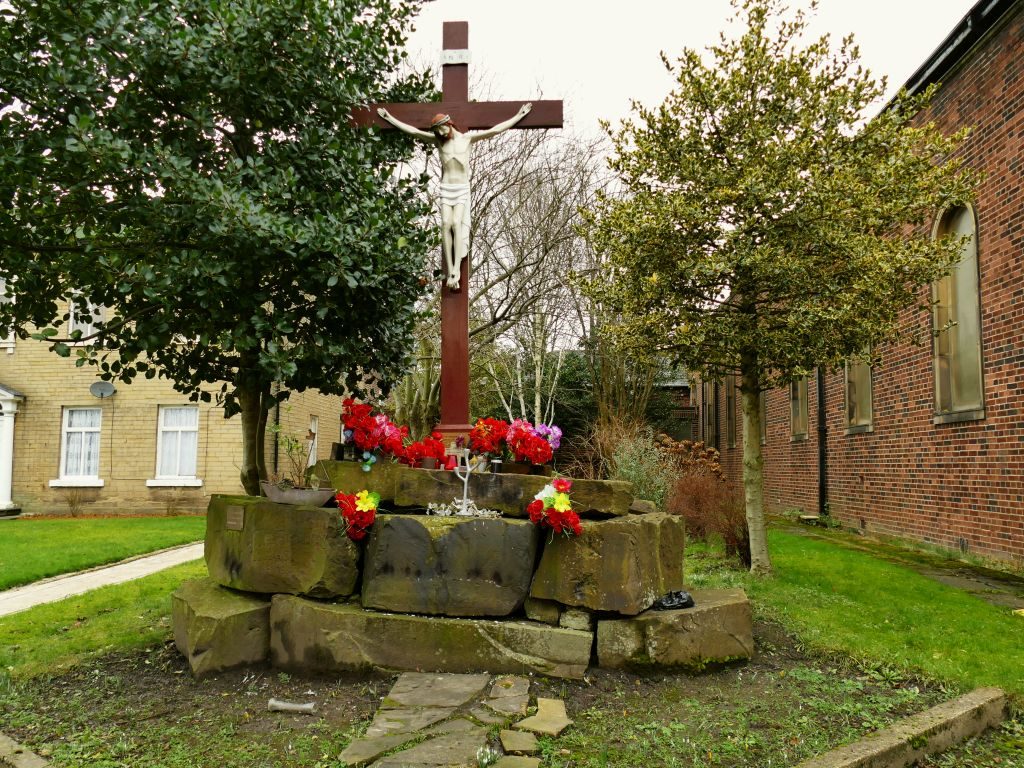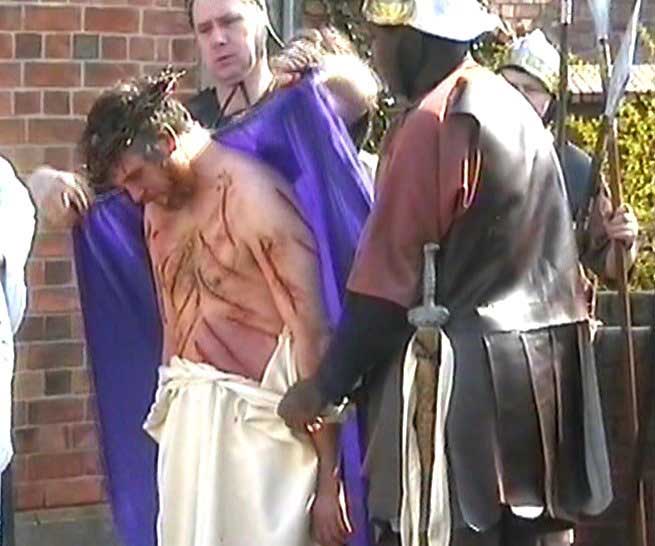A sermon for St Margaret’s Bramley, 7 April 2019
Readings: (Isaiah 43:16-21) / Philippians 3:4-14 / John 12:1-8
I want us to hear a couple of short stories this morning, as well as our two Bible readings. Let’s start with one of Aesop’s fables.
The miser and his gold
The miser put a great value on the gold, although in its hole it was of no practical use. Today’s Bible readings are also both, in different ways, about what people value.
St Paul (or Saul as he was originally called) put great value on his Jewish heritage. He was proud of the tribe he belonged to, he boasted of his theological education, his devout practice in temple worship and obeying all the religious rules. He was even proud of persecuting the new Christian sect who didn’t do these things. He thought God valued him because of all those.
But as soon as Saul encountered the risen Jesus on the road to Damascus, he saw that those things he had valued were not only of no value, but negative value – “whatever gains I had, I have come to regard as loss” – the language is that of credit and debt. Like the miser’s gold in the hole that had been replaced by a stone, they had become not treasures, but a weight around his neck. He had not only to ignore, but get rid of, those things that were holding him back in faith.
Instead, Paul (as he was then known) valued more than anything his faith in Jesus Christ. He writes, “I want to know Christ, and the power of his resurrection, and the sharing of his sufferings by becoming like him in his death”. That verse puzzled me when I first came across it, and it still challenges me now. To know Christ – yes, that’s what we all want to do as Christians. To know the power of his resurrection – yes, that sounds wonderful, although it’s not something we experience day to day. But to share his sufferings and become like him in death? That’s really challenging.
Does it mean that Jesus expects me to be persecuted and tortured to death to prove that my faith is real? I don’t believe that every Christian is expected to suffer literally in that way, though some do in other places around the world. Perhaps it makes more sense if we think of it in these terms of reversing values. To value our faith above worldly ideas of wealth and status will often mean losing out in financial terms, just as Jesus and his disciples lived a simple life with no settled home, and that hurts. It will sometimes mean losing friendships, when people don’t understand us and walk away, just as Jesus was rejected by many, and that hurts. When these things happen, we need to remind ourselves again what it is we are valuing – the cross and resurrection of Christ.
Value of course, is so often measured by the world in monetary terms, like the miser’s gold. In the Gospel story we see a great contrast between Judas and Mary in their values. For Judas the value of the perfume was monetary. He reckoned it at 300 denarii, which was nearly a labourer’s annual wages, let’s say at least £10,000 today. It was Mary’s life savings, in the form of a physical asset, again like the miser’s gold. But unlike the miser who kept the gold hidden in the ground where is was of no use, Mary was willing to realise its value in a new way. At that moment, when Jesus who had raised her brother Lazarus from death to life, came to visit, money meant nothing. Like Paul, she had come to a point where she understood that her relationship with Jesus meant so much to her that everything she valued, including the jar of valuable ointment, meant nothing. Indeed it had to be sacrificed in order to allow Jesus to take his rightful place in her life.
There’s another way of considering value, besides the value that we give to money, possessions or relationships. That is the value that other people, and God, put on us, on our own unique life. Here’s another story from a different religious tradition, that of the Sikhs.
Guru Nanak’s disciple and the precious stone.
[For non-Indian readers, 50 lakhs = 5 million Rupees; 2 Crore = 20 million Rupees]
Jesus, of course, said similar things about the value that God puts on us. “Are not two sparrows sold for a penny? Yet not one of them will fall to the ground unperceived by your Father. So do not be afraid; you are of more value than many sparrows.” Or again, “Take care that you do not despise one of these little ones (that is, any of his disciples) for, I tell you, in heaven their angels continually see the face of my Father in heaven.”
Lent is a time when we are encouraged to think about what we value, and what our value is to other people and God. Some people like to put aside something that they think is holding them back from God – like Paul laying aside his empty Jewish traditions, or Mary pouring away her costly perfume.
Others, like Mary sitting at the feet of Jesus to listen to him (as another gospel story tells us) prefer to take up or do more of something that they think will help them find God – prayer, devotional reading, or study groups.
When we do find God through Jesus, and realise our value to him as well as his value to us, often the only meaningful response is one of sacrifice. Mary’s outpouring of the ointment was both a response to Jesus’s teaching that she had received, and a thank offering for bringing her brother back to life. Paul’s response to encountering Jesus in his life was to sacrifice his high status in Jewish circles and join the very group of believers whom he had once persecuted.
Perhaps, then, it is to the extent that we are willing to make sacrifices for Christ’s sake – sacrifices of money, or possessions, or time, or status, that we being to respond to Paul’s challenge “to share Christ’s sufferings”. But we can only be motivated to do this, when we realise that the value God places on us is far more than the value we can ever place on him. On the cross, Jesus showed that the value he places on each one of us is greater than the value he placed on his own life. The sacrifice we owe in return is nothing less. In the words of a well known Lent hymn:
Were the whole realm of nature mine,
That were an offering far too small;
Love so amazing, so divine,
Demands my soul, my life, my all.
(c) Stephen Craven 2019

